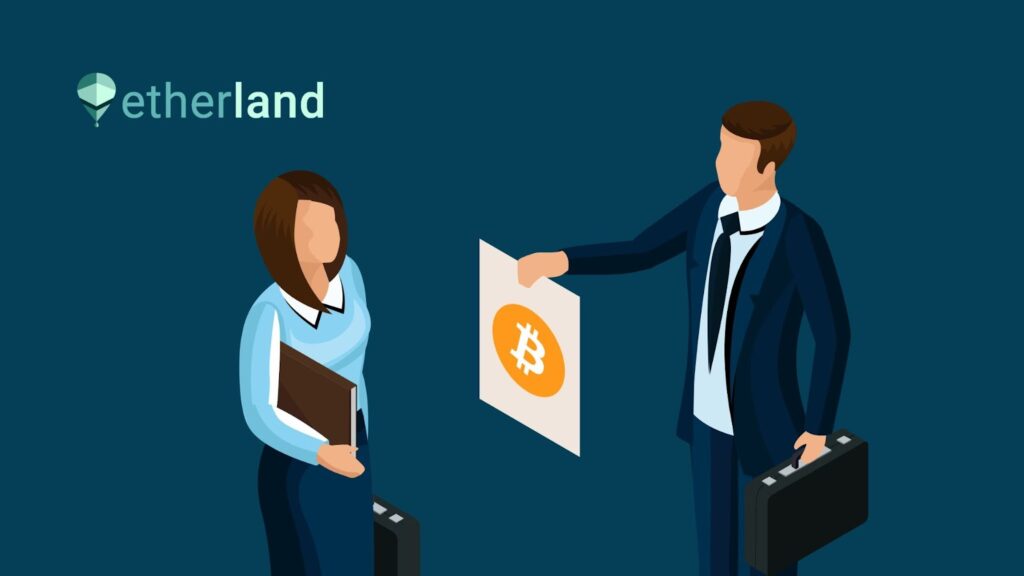Outdated document management systems plague the real estate industry. Excessive paperwork, fragmented processes, and security vulnerabilities create delays, inefficiencies, and frustration for all involved.
While most real-world asset (RWA) projects operating within the real estate sector in 2024 have focused solely on fractionalization, the real advantage of blockchain technology in this field lies in document management, storage, and verification.
The on-chain B2B and B2C solutions being developed by Etherland offer secure recordkeeping, streamlined workflows, and enhanced transparency, promising to revolutionize how we handle real estate documentation.
The Issues Plaguing Traditional Real Estate Document Management
A complex and inefficient document management system has long burdened the real estate industry. The sheer volume of paperwork involved in transactions can be overwhelming, from sensitive contracts and property records to appraisals and surveys. This outdated reliance on physical documents and centralized storage has several critical pain points:
- Fragmented Systems and Cumbersome Processes: Real estate transactions involve multiple parties – brokers, lawyers, lenders, and government agencies. The lack of a unified system for storing and sharing documents leads to delays, miscommunication, and a frustratingly slow process.
- Vulnerability to Fraud and Errors: Physical documents are susceptible to tampering, loss, or damage. The potential for human error in data entry and management creates further risks, undermining the integrity of records and potentially leading to costly disputes.
- Inefficiencies and Lack of Data Accessibility: Critical information is often locked away in disparate systems or stored in formats that are difficult to access. This lack of transparency and streamlined data sharing hinders decision-making, delays transactions, and increases overall costs for everyone involved in the real estate process.
The inefficiencies and vulnerabilities inherent in traditional real estate document management create a system ripe for disruption. Fortunately, Etherland’s solution is on the horizon.
Blockchain-Based Solutions: A Revolution in Document Management
Document tokenization offers a solution to the longstanding challenges of real estate document management. Its core characteristics of decentralization, immutability, and the ability to execute smart contracts provide the foundation for a secure, efficient, and transparent system.
Instead of relying on vulnerable centralized systems, blockchain technology stores documents in a way that ensures their integrity. Each transaction is recorded as a block linked to the previous block in an unchangeable chain, preventing unauthorized alterations and establishing a reliable historical record. This significantly reduces the risk of fraud and errors.
Smart contracts further improve document management by automating many of the manual processes involved in real estate transactions. These self-executing contracts can trigger actions like payments or document transfers when specific conditions are met, streamlining workflows and minimizing delays.
Perhaps most importantly, blockchain’s decentralized nature creates a shared, tamper-proof ledger accessible to authorized parties. This enhanced transparency increases trust, reduces the need for intermediaries, and enables seamless collaboration between stakeholders.

Fractionalization Vs. Etherland’s Tokenized Document Storage Solutions
Fractional ownership, often touted as the only RWA blockchain use case for real estate, faces inherent limitations. Dividing a physical asset into smaller, tradable tokens introduces complexities: legal hurdles surrounding ownership rights, potential illiquidity of tokens, and difficulties in managing the underlying asset. These challenges can hinder the widespread adoption and scalability of fractionalization models in the real estate market.
Etherland’s approach focuses on tokenizing the documentation associated with real estate assets, not the assets themselves. This approach leverages blockchain technology to create secure, immutable digital records linked to physical properties. By tokenizing documents like deeds, appraisals, and surveys, Etherland streamlines transactions, enhances transparency and maintains the integrity of real estate data without the complexities of fractional ownership.
Etherland’s solutions directly address the pain points of traditional document management. The ProApp platform establishes secure workflows and enables tamper-proof record keeping. The REFS system provides blockchain-backed storage and file sharing, ensuring the security and accessibility of sensitive information.
Unlike fractional ownership, which requires significant changes to existing legal frameworks, Etherland’s tokenized document storage solutions integrate into current real estate practices. This approach is arguably more likely to achieve mainstream adoptions and provide real-world utility, unlike the generally purely speculative fractionalization solutions.
Final Thoughts on Tokenized Document Management and Real Estate
The challenges of traditional real estate document management call for innovation. Blockchain technology unlocks a future of secure, streamlined, and transparent processes. Etherland, at the forefront of this change, offers solutions that enhance efficiency, reduce friction, and safeguard the integrity of real estate.






